- Home
- George R. R. Martin
Joker Moon Page 15
Joker Moon Read online
Page 15
“But?”
“There’s a reason we’re on a military base.”
“Beyond your personal connections and the location?”
“Security, Cash. There are people who don’t want us to prove we can go to the Moon.”
“Well, there’s Bertram Neal—”
“—or a dozen other people in business, or in other countries. And never forget the Takisians and whoever they have running around.”
I had to remind myself that Sampson, for all his virtues, was still a military man—a professional paranoiac. “So, just to be clear, one of the three reasons our jet failed might be … sabotage?”
“Don’t be an ass.”
And so my partner in one and possibly two flights to the Moon was done talking to me.
On the drive back to the Witherspoons’, I said to Ridley, “Hey, you wanna fly to the Moon?”
“With you and the general in that little thing? No thanks.”
“It’s only for a few days. Come on, you’ll be famous!”
“Like you?”
“Better than me.”
“I’m happy right here.”
He went silent at that point, allowing me to ponder the question of the third member of the Quicksilver crew. Sampson was a given and I was mandatory. The subject had simply not come up, no doubt due to the ridiculous haste surrounding the whole idea. Was there some scientist lurking in the background? Someone associated with this prize?
For a crazy few seconds I wondered if Theodorus might be the best choice. But (a) he was a kid and (b) he simply wouldn’t fit in the cabin.
We didn’t reach the Witherspoons’ until the house was as dark as it ever got. Too late for dinner, though we had leftovers in the RV. After a sad meal, Ridley grabbed the first shower, and I was sitting with my feet up when Malachi Schwartz knocked.
“We have a change in plans.”
At 5:13 a.m. (the precise time was noted) on a humid Friday, May 22, 1981, a whole team of law enforcers, federal and state (both Kentucky and South Carolina), nat and joker, appeared at the gates of the Witherspoon estate with warrants.
Well, only four appeared at the front gates. Having grown wise to Witherspoon ways, other teams took up position at the other three exits.
Malachi Schwartz met them in his robe and graciously invited them to present their papers and demands, which were to produce Mr. Cash Mitchell and Ridley Hough to face charges of felony assault and flight from justice, and to search as they might.
The sheer scope of the Witherspoon household with its three buildings made such a search an hours-long event.
Naturally they did not find us.
I only heard these details from Theodorus and Alice. We had been tipped off and at 5:13 that morning my RV and the Quicksilver truck were already hidden inside a hangar at Goose Creek Air Force Base about ten miles to the northwest.
Where, get this, we were preparing to launch the human race’s second flight to the Moon. With something like eight hours’ notice.
With a crew of Major General Michael Sampson, USAF (Retired) as commander and pilot, Cash Mitchell as whatever the hell I am, propulsion specialist and cargo—and the third?
That news had been announced to me as I was climbing behind the wheel of my RV, about to follow Ridley and the truck. Alice climbed in with me. “Drive, please.”
“Shouldn’t you be riding with the grown-ups?” A sedan had pulled up out front, ready to take Eva-Lynne and others out of harm’s way. Theodorus’s special van was standing by, too.
“Don’t you like me, Cash?” I got just a burst of Alice Dayton on full flirt, enough to make me her creature.
An answer was not required. I merely fired up the RV and headed out.
“You’re taking Eva-Lynne on the flight.”
An answer, or protest, did not seem required here, either. Nevertheless: “Why?”
“She was on the first.”
“And now she’s sick, possibly dying.”
“That’s why. She needs the prize money.”
Which shut me up.
The Witherspoons, to use a phrase my father uttered frequently, quite possibly translating from the Babylonian, had more money than God (or probably “the gods”). Surely they could have offered to support Eva-Lynne and her boys for the rest of their lives.
One thing I had learned about people with lots of money—they like to hold on to it, and if they do let it go, it’s when they want. And … it was quite likely to the point of certainty that Eva-Lynne did not want charity.
So there we had it: Eva-Lynne Roderick Mitchell was our third crewmember.
I was too tired to be as angry as I should have been—at Sampson, Schwartz, the Witherspoons (Henry met us at Goose Creek), at everyone who was behind this scheme—and was largely acting like a sleepwalker.
Sampson and Ridley were supervising the refueling of Quicksilver’s rockets. The failed steering jet had not been replaced, but simply patched. As I pointed to it, about to ask the obvious question, one of the techs said, “We didn’t have time to replace it, so we just disabled its twin on the other side.”
“So neither of those is really necessary.”
Noting my verbal assault on the tech, Sampson strode toward me. “You’ve got a big lift ahead of you, Cash. Shouldn’t you be eating a hearty breakfast?”
“You remember what triggered my biggest lift, don’t you? Off the Moon?”
The damage Quicksilver had suffered on our first landing had caused a fuel leak; we did not actually have sufficient rocket fuel to rise off the lunar surface to where my lifting would take over. What gave me the equivalent of an adrenaline boost was making love to Eva-Lynne right there in the Quicksilver air lock.
It took Sampson several moments to remember the event—less a case of poor recall; he was just a prude and had surely repressed the notion along with any ecstatic sounds and fleshy sights. “Well,” he said, “I can’t help you there.”
Henry worked his political magic on the base commander, who turned out to be a frat brother. (Another reminder that I somehow failed to enter so many different and beneficial worlds.) Alice tended to Eva-Lynne.
During the first moments after we arrived at the hangar, my ex seemed energized. I even saw her smile and heard her laugh as she and Alice crawled in and out of the Quicksilver cabin. This annoyed Ridley. “What are they doing?”
“Personalizing the cabin,” I said.
“What, putting up curtains?”
“Close. Putting a few plants there.” I didn’t need to add that Eva-Lynne had also taped pictures of Amos and Orson to the wall near her couch.
When I found a private moment with her, however, I saw that she was trembling, on the brink of a breakdown. “Why are you doing this?”
“Alice told you.”
“Let Sampson and me do the flight. We’ll give you the money!”
“I left those boys, Cash. I owe them.”
“Maybe you owe them support now, but who cares about the past?”
“You don’t understand.” Not the first time she had used those words with me. “It’s the only thing I can do for them.”
And then she walked away from me.
Maybe it was the way she paused to look up at the sky, quite a pretty one now that the clouds were clearing. Or the oddly intimate moment where she just spread her arms and took a break, as if embracing all of Earth and life—
I knew then: she did not expect to survive this trip.
I might have said something—to her, to the Witherspoons, to Sampson. But I already suspected that all of them knew, and were complicit.
And, really, what future did she face? A transformation into a joker high on the hideous scale? Or death in some grim hospice—?
Better on the Moon.
Having arrived in his custom van, driven by James, Theodorus Witherspoon lumbered to a spot well away from the tech teams swarming Quicksilver. As I was still debating my options regarding Eva-Lynne, I saw him and approac
hed.
“Sorry about the rest of the lessons,” I told him.
“You’ve got the perfect excuse. I wouldn’t accept anything less than going to the Moon, though.”
I realized that I not only liked Theodorus but felt that he would do all right in life. Then he said, “Shouldn’t you have some kind of cool uniform?”
I was wearing my usual clothing, slacks and a polo shirt. I realized that Sampson was in a smart blue Air Force flight suit. Eva-Lynne had dressed for the occasion, too, in a dark blue pullover, matching slacks, and white sneakers. She complemented Sampson; I looked like a janitor. “Too late now,” I said. “And this is pretty much what I wore the first time, and it worked then.” I offered my hand, and Theodorus took it, almost crushing it.
And I heavy lifted him right off the ground.
There he was, this massive human-snail-whatever, long tail flapping helplessly. I hastened to let him down. “Sorry!” I was about to add, “nerves,” but surely that was obvious.
He was laughing. “You’re just warming up.”
Nearby, in the hangar, a phone jangled. Henry Witherspoon went to answer it.
I told Theodorus, “Oh, don’t forget: if you get Eva-Lynne’s autograph, you’ll have the world’s only complete set of Quicksilver space flyers.”
“Really?” You’d think I offered him a dragon’s horde, or maybe a return to nat-hood.
He grabbed a clipboard and a pen from one of the techs, then slid over to Eva-Lynne, who seemed to be quite gracious about the request.
Meanwhile, Henry Witherspoon literally ran past us.
“Cash!” Standing in front of Quicksilver, General Sampson beckoned to me. The dozen or so members of the tech team were standing around, impatiently. “Do you want to go to the Moon or not?”
“Do I have a choice?” I said.
It all seemed quite casual, until Sampson said, “You can wait for the police. They’ll be here soon.”
“I think I’ll go with you instead.”
Before I could reach my crewmates and Quicksilver, I had to run a gauntlet. First Henry Witherspoon stopped to shake my hand. “Good luck, Cash. And thank you.”
Then Alice gave me a hug and actually kissed me on the cheek. “Come back safely,” she whispered. Finally, Ridley waited.
“You aren’t going to kiss me, are you?”
Then he punched me in the shoulder. “Hurry back,” he said. “We’ve got a schedule to keep.”
Sampson was first into the vehicle, sliding into the left-hand seat. I was next, sliding into the right. Eva-Lynne was last, wedging herself into the third seat, which was slightly off-center, behind Sampson’s. I turned to help her with the straps, but she waved me away. “I remember.”
“Hey, you two, showtime. That phone call was from Schwartz: the cops are here so we go now or never.”
“Well, hell,” I said. “Let’s go to the Moon again.”
The tech team and spectators had cleared the area. With no special preliminary, Sampson fired the main engines and we rose, Quicksilver vibrating in a way I did not remember.
As we hovered, I could see half a dozen police cars clustered at the main gate.
“Go for lift number one,” Sampson said. And I grabbed the tiller.
I could have sworn I saw the shadow of Quicksilver flashing over the trollish form of Bertram Neal, looking up as we disappeared into the sky.
The external events of this mission have been recounted in several publications over the last couple of years. I even published my own sanitized version in Joker Life.
Between that, and my earlier account of 1968, I have little to add: a flight from the Earth to the Moon takes three days each way. Quicksilver’s life-support systems would only support three people for a total of eight days, so time on the surface was limited to two days—one being a smarter choice.
Let’s be honest: In 1946 a spaceship from another world arrived and made war on the human race. We have lived with alien beings for thirty-five years.
By comparison, the details of a 500,000-mile round trip, however plucky, are of no real importance.
I had to perform six big lifts.
Number one was launching us from Goose Creek to an altitude of 130 miles and a speed of 17,500 miles an hour.
This was a wrenching experience and left me useless for two hours, time enough to allow Sampson to communicate with “flight control” at Goose Creek about the timing and aim of lift number two. (I had some control over the direction of a lift, and using the special tiller added vital precision: it was like setting off a big bomb under Quicksilver and shooting it toward a specific spot in space. You wanted that spot to be somewhere above the Moon’s surface, not splat in the lunar dust—or in the wrong direction entirely.)
Lifts number three and number four were actually reverses—number three being a major braking on approach to the Moon, allowing us to fall toward our target on the Ocean of Storms. Sampson would use the rockets to do the final tweaks and I would perform a minor number-four lift to slow us for a gentle landing.
Number five would blast us back to Earth after Sampson used the main rockets to give us altitude.
Number six was designed to be the primary reverse lift, slowing us for entry into the atmosphere, but could actually be broken into three steps—tweaking our path, performing the slowdown, and then a final reverse lift before landing.
Sampson and I spent hours talking about these, writing down the likely times (after consultation with our ground team).
The rest of the voyage, other than eating, trying to stay tidy, and sleeping, was spent looking out the window. There were three forward windows in the cockpit, and a circular one in the main hatch/air lock. Eva-Lynne essentially claimed that for herself. For our first two loops around Earth, she floated there, rapt, and who could blame her? In spite of my jaded attitude—the Moon, been there, done that—I could still be moved by the sight of a blue/brown/green orb rolling by beneath us.
When I wasn’t feeling sick. (This happened to me on the first flight, too, a sensation a lot like seasickness, obviously due to being without weight.) Sampson appeared to be immune; Eva-Lynne didn’t say and we didn’t ask.
As Earth receded behind us (we were looking toward the Moon, or rather, deep, dark space), she was in the air lock with the door closed. Halfway to our destination, during an especially quiet time, when Sampson was asleep in his chair, his arms floating like a sleepwalker’s, I tapped on the air lock door. “How are you doing?” I said. “Need food or water?”
The door peeped open, not enough for me to see inside beyond noting that the interior light was off and illumination was coming from the circular hatch.
I held out a sandwich in a bag, and a bottle of water.
An appendage more like a claw than a hand carefully took both items. I heard a croak from inside the chamber that might have been a “thank you”—or a warning.
Then the hatch was pulled shut again.
I was worried about Eva-Lynne, but unable to do anything. And my relationship with her, and everything I had learned about her life prior to that and afterward, made it clear that she would make her own choices about her life, even its end.
We’re all of us humans helpless against the wild card.
When Sampson awoke on our landing day, he asked me, with some concern, “What’s going on with her?”
“I think she’s changing and fading.”
He pondered this. “Will it affect our ops?”
“Only if we have to climb over her to get out.”
He nodded. God bless the pilot mentality; all he was capable of thinking about was his ability to fly Quicksilver. Not that I was unhappy about that.
In the last four hours before landing I rapped on the air lock door again.
No answer.
I pushed it open and was immediately aware of a smell—not decay or death, but Eva-Lynne’s new smell, stronger.
What I found was not Eva-Lynne, not as I knew her, loved her, h
ad made love to her.
She had become a smaller being—slimy piles of flesh or other matter had been sloughed off her—wiry, leathery, still bilaterally symmetrical in that “she” had two arms, two legs, and a head. Her clothing was five sizes too big.
I was shocked, yet … I was only four when the wild card struck. I’d seen or heard of many transformations like this in the thirty-five years since. This one hurt, though. It was as if I were losing Eva-Lynne a second time.
Sampson called from the pilot seat, “Whatever it is, it can wait. You’ve got a lift to do.”
I pulled the air lock door shut and pulled myself back to my station.
It was strange yet familiar to see the gray pockmarked face of the Moon growing fatter and fatter, even if half to two-thirds was in black, impenetrable shadow.
“Try and stick the landing this time.”
We did. You know that. Eleven hours on the surface of the Moon, less than five hundred meters from our 1968 landing site.
The only tricky moment was the prep for our suited walk on the surface. We had three tasks: take photographs, collect samples, and, if possible, remove a piece of the relay station to take back with us.
We had just two suits. Our plan had been for me and Sampson to don them, entering the air lock and leaving Eva-Lynne safely inside the cabin. But she was unconscious. It almost felt cruel to move her, much less leave her. “It’s got to be done,” Sampson said. “For her as well as us.” So in my suit, with helmet off, I picked up the new version of Eva-Lynne and placed her in my chair. The movement woke her. At first she seemed frightened, certainly startled.
“Are we there?” she asked, her voice a bare, croaking whisper.
“Yes, we made it.” I reached for a bottle to give her some water.
“They get the money.”
“Yes. You, too, you know.” I gave her a drink and saw what might have been a smile.
“It’s for them.” She sounded, and looked, like someone who had given up.
“We’ll be back home in three days. We can get you to Doctor Tachyon.”

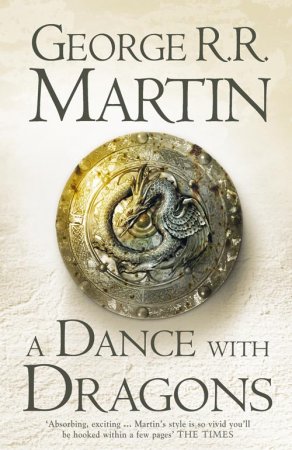 A Dance with Dragons
A Dance with Dragons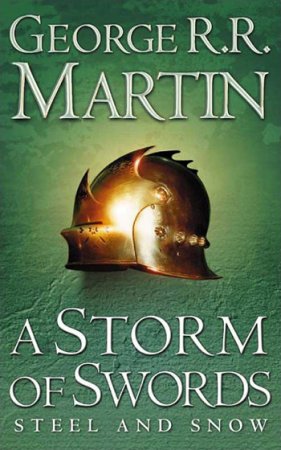 A Storm of Swords
A Storm of Swords A Feast for Crows
A Feast for Crows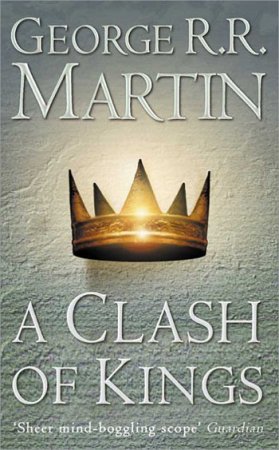 A Clash of Kings
A Clash of Kings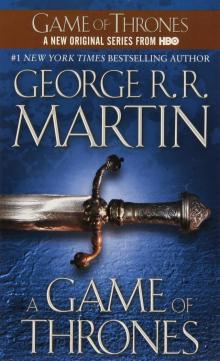 A Game of Thrones
A Game of Thrones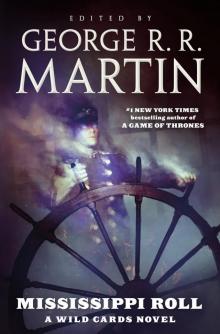 Mississippi Roll
Mississippi Roll Wild Cards V: Down and Dirty
Wild Cards V: Down and Dirty Busted Flush
Busted Flush When the Devil Drives
When the Devil Drives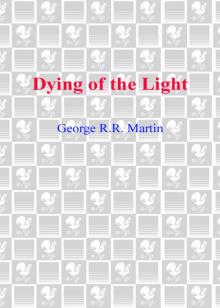 Dying of the Light
Dying of the Light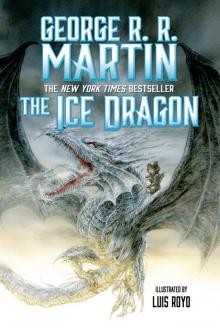 The Ice Dragon
The Ice Dragon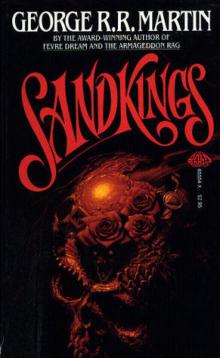 Sandkings
Sandkings Jokertown Shuffle
Jokertown Shuffle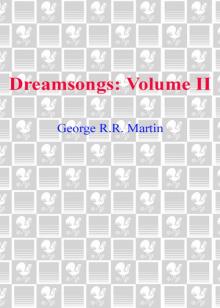 Dreamsongs. Volume II
Dreamsongs. Volume II Deuces Down
Deuces Down When We Were Heroes
When We Were Heroes Warriors
Warriors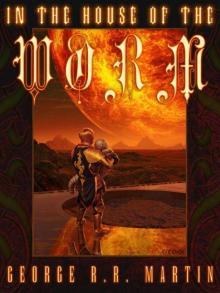 In the House of the Worm
In the House of the Worm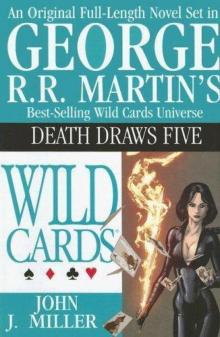 Death Draws Five
Death Draws Five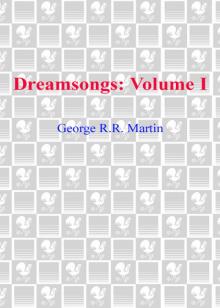 Dreamsongs. Volume I
Dreamsongs. Volume I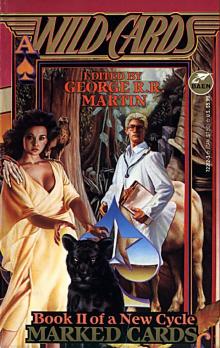 Marked Cards
Marked Cards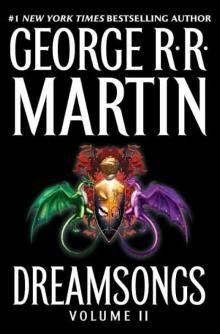 Dreamsongs
Dreamsongs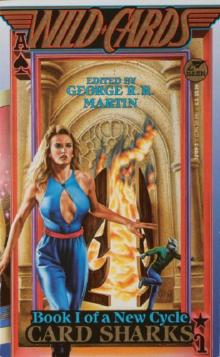 Card Sharks
Card Sharks Dangerous Women
Dangerous Women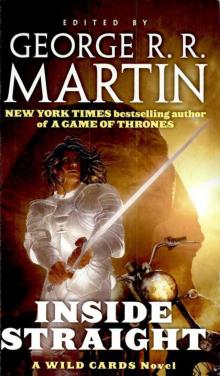 Inside Straight
Inside Straight Turn of the Cards
Turn of the Cards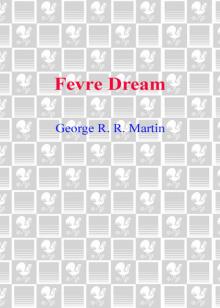 Fevre Dream
Fevre Dream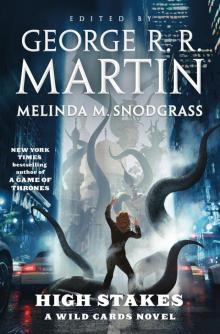 High Stakes: A Wild Cards Novel
High Stakes: A Wild Cards Novel Windhaven
Windhaven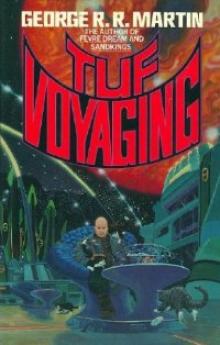 Tuf Voyaging
Tuf Voyaging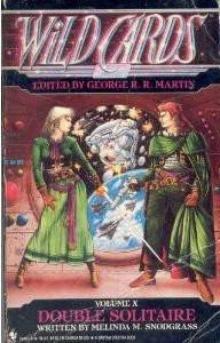 Double Solitaire
Double Solitaire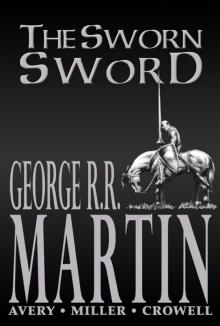 The Sworn Sword
The Sworn Sword Low Chicago
Low Chicago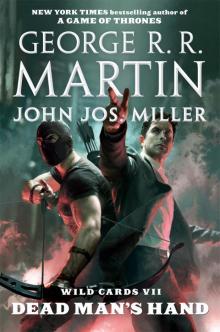 Dead Man's Hand
Dead Man's Hand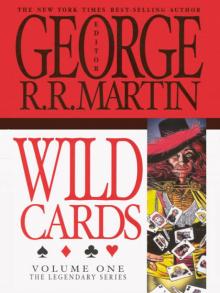 Wild Cards
Wild Cards Black Trump
Black Trump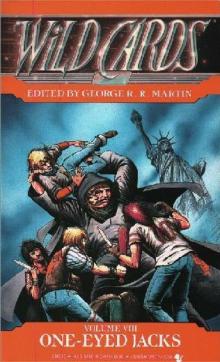 One Eyed Jacks
One Eyed Jacks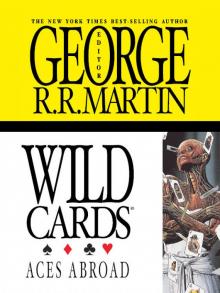 Wild Cards: Aces Abroad
Wild Cards: Aces Abroad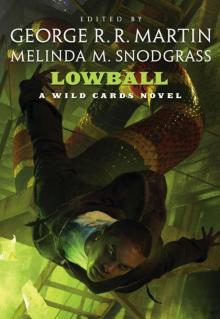 Lowball: A Wild Cards Novel
Lowball: A Wild Cards Novel Double Solitaire (2019 Edition)
Double Solitaire (2019 Edition) Dealer's Choice
Dealer's Choice Ace in the Hole
Ace in the Hole A Song for Lya: And Other Stories
A Song for Lya: And Other Stories Three Kings
Three Kings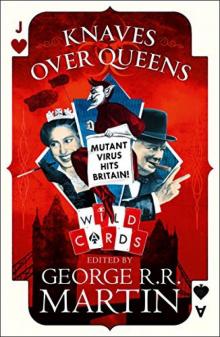 Knaves Over Queens
Knaves Over Queens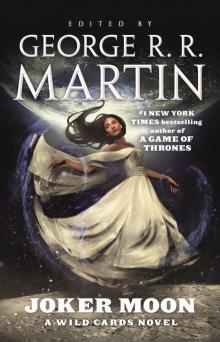 Joker Moon
Joker Moon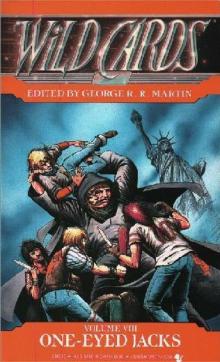 One Eyed Jacks wc-8
One Eyed Jacks wc-8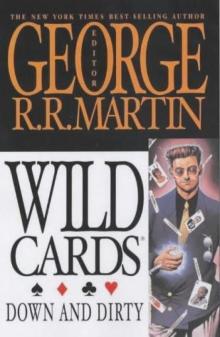 Down And Dirty wc-5
Down And Dirty wc-5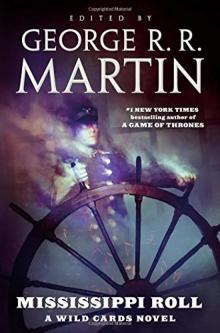 Mississippi Roll_A Wild Cards Novel
Mississippi Roll_A Wild Cards Novel A Feast for Dragons
A Feast for Dragons The Sworn Sword ttodae-2
The Sworn Sword ttodae-2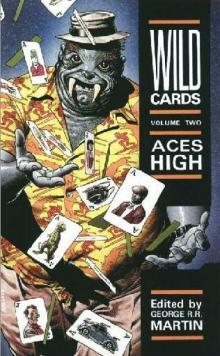 Aces High wc-2
Aces High wc-2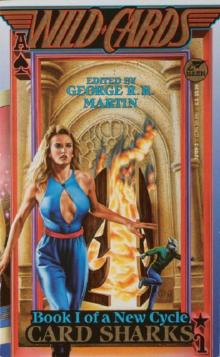 Wild Cards 13 : Card Sharks
Wild Cards 13 : Card Sharks Way of the Wizard
Way of the Wizard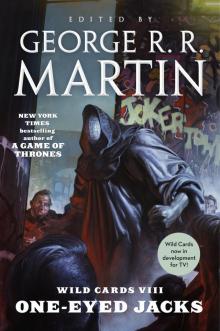 Wild Cards VIII: One-Eyed Jacks
Wild Cards VIII: One-Eyed Jacks A Dance With Dragons: Book 5 of A Song of Ice and Fire (Song of Ice & Fire 5)
A Dance With Dragons: Book 5 of A Song of Ice and Fire (Song of Ice & Fire 5) The Princess and The Queen, Or, The Blacks and The Greens (a song of ice and fire)
The Princess and The Queen, Or, The Blacks and The Greens (a song of ice and fire)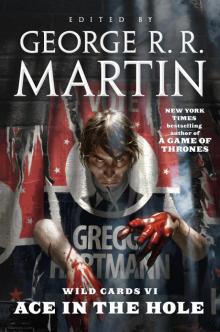 Wild Cards VI--Ace in the Hole
Wild Cards VI--Ace in the Hole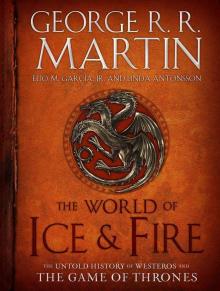 The World of Ice & Fire: The Untold History of Westeros and the Game of Thrones (A Song of Ice and Fire)
The World of Ice & Fire: The Untold History of Westeros and the Game of Thrones (A Song of Ice and Fire)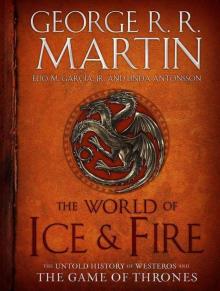 The World of Ice & Fire: The Untold History of Westeros and the Game of Thrones
The World of Ice & Fire: The Untold History of Westeros and the Game of Thrones Busted Flush wc-19
Busted Flush wc-19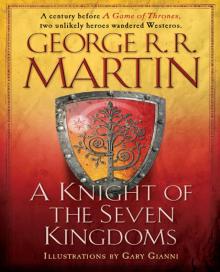 A Knight of the Seven Kingdoms
A Knight of the Seven Kingdoms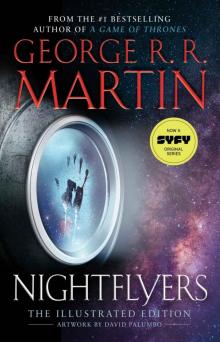 Nightflyers: The Illustrated Edition
Nightflyers: The Illustrated Edition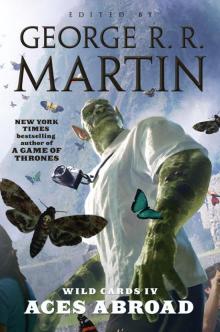 Wild Cards IV
Wild Cards IV Portraits of His Children
Portraits of His Children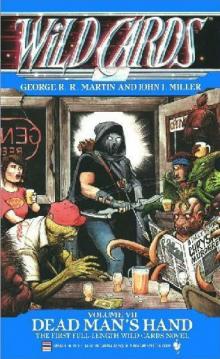 Dead Mans Hand wc-7
Dead Mans Hand wc-7 Jokers Wild wc-3
Jokers Wild wc-3 The Lonely Songs of Laren Dorr
The Lonely Songs of Laren Dorr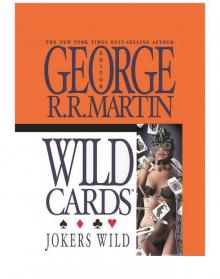 Wild Cards III: Jokers Wild
Wild Cards III: Jokers Wild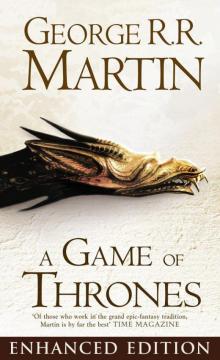 A Game of Thrones Enhanced Edition
A Game of Thrones Enhanced Edition Nightflyers & Other Stories
Nightflyers & Other Stories Armageddon Rag
Armageddon Rag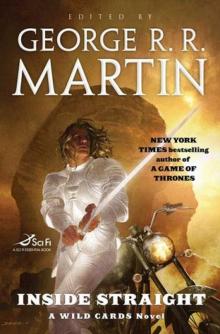 Wild Cards: Inside Straight
Wild Cards: Inside Straight A Song for Lya
A Song for Lya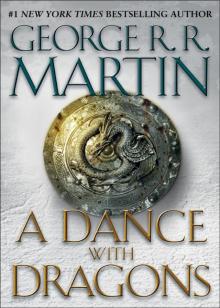 A Dance with Dragons: A Song of Ice and Fire: Book Five
A Dance with Dragons: A Song of Ice and Fire: Book Five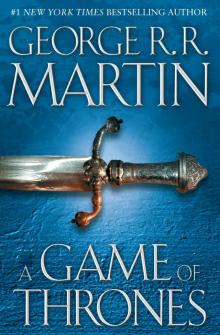 Song of Fire & Ice 01 - A Game of Thrones
Song of Fire & Ice 01 - A Game of Thrones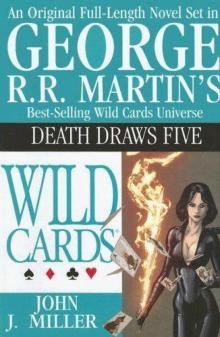 Death Draws Five wc-17
Death Draws Five wc-17 Turn of the Cards w-12
Turn of the Cards w-12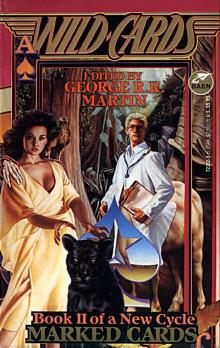 Wild Cards 14 - Marked Cards
Wild Cards 14 - Marked Cards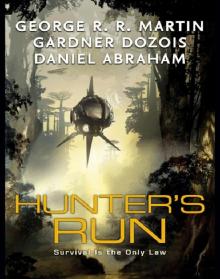 Hunter's Run
Hunter's Run The Glass Flower
The Glass Flower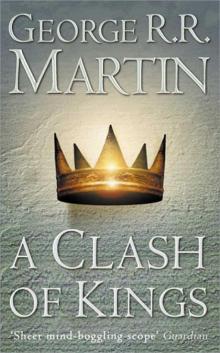 A Clash of Kings asoiaf-2
A Clash of Kings asoiaf-2 A Game of Thrones 5-Book Bundle: A Song of Ice and Fire Series: A Game of Thrones, A Clash of Kings, A Storm of Swords, A Feast for Crows, and A Dance with Dragons (Song of Ice & Fire)
A Game of Thrones 5-Book Bundle: A Song of Ice and Fire Series: A Game of Thrones, A Clash of Kings, A Storm of Swords, A Feast for Crows, and A Dance with Dragons (Song of Ice & Fire)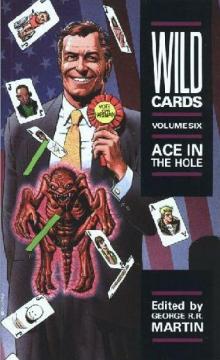 Ace In The Hole wc-6
Ace In The Hole wc-6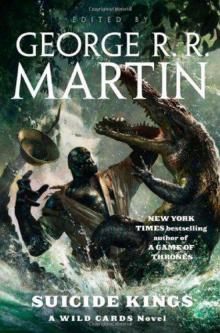 Suicide Kings wc-20
Suicide Kings wc-20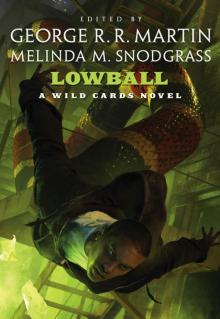 Lowball
Lowball Aces Abroad wc-4
Aces Abroad wc-4 George R. R. Martin's a Game of Thrones 4-Book Bundle
George R. R. Martin's a Game of Thrones 4-Book Bundle A Feast for Crows asoiaf-4
A Feast for Crows asoiaf-4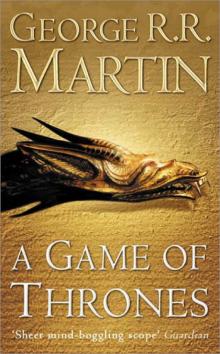 A Game of Thrones asoiaf-1
A Game of Thrones asoiaf-1 The Mystery Knight ttodae-3
The Mystery Knight ttodae-3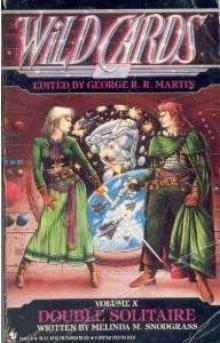 Double Solitaire w-10
Double Solitaire w-10 Wild Cards 15 - Black Trump
Wild Cards 15 - Black Trump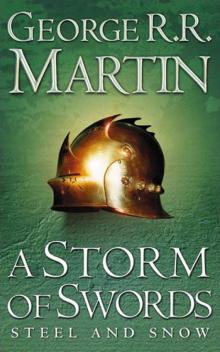 A Storm of Swords asoiaf-3
A Storm of Swords asoiaf-3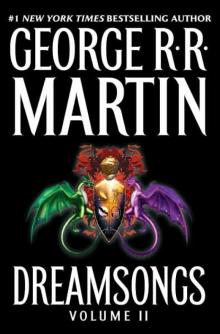 The Hedge Knight ttodae-1
The Hedge Knight ttodae-1 Dreamsongs 2-Book Bundle
Dreamsongs 2-Book Bundle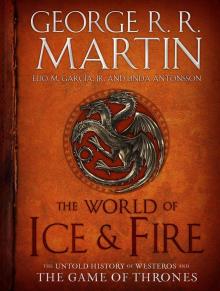 The World of Ice & Fire
The World of Ice & Fire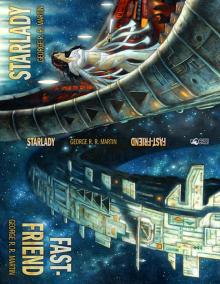 Starlady & Fast-Friend
Starlady & Fast-Friend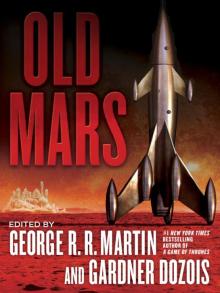 Old Mars
Old Mars Fantasy For Good: A Charitable Anthology
Fantasy For Good: A Charitable Anthology Wild Cards V
Wild Cards V A Dance with Dragons asoiaf-5
A Dance with Dragons asoiaf-5 Dealer's Choice w-11
Dealer's Choice w-11 The Book of Magic
The Book of Magic A Game of Thrones 4-Book Bundle
A Game of Thrones 4-Book Bundle Texas Hold 'Em
Texas Hold 'Em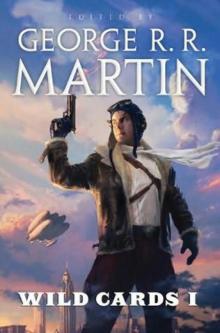 Wildcards wc-1
Wildcards wc-1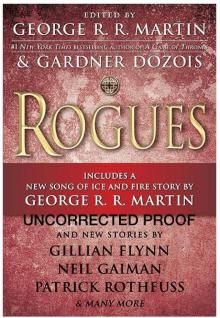 Rogues
Rogues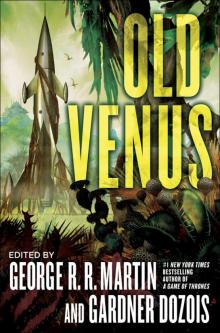 Old Venus
Old Venus